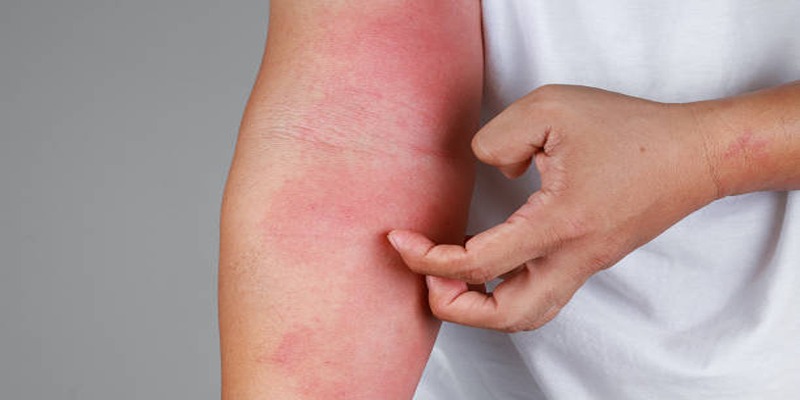Eczema Relief: Simple and Effective Remedies You Can Try
Advertisement
Eczema is a common skin condition that causes the skin to become itchy, red, and inflamed. Millions of people worldwide deal with this often uncomfortable condition, trying to find ways to soothe their skin and prevent flare-ups. While eczema can be persistent, there are many simple and effective home remedies that can help manage its symptoms. From natural moisturizers like coconut oil to relaxing oatmeal baths, these treatments can provide relief without needing expensive treatments. It's important to remember that while these remedies can help, consulting with a healthcare provider for persistent or severe symptoms is always a good idea. With the right approach, managing eczema can become a much less daunting task, allowing those affected to focus more on life's pleasurable moments.
What is Eczema?

Eczema, also known as atopic dermatitis, is a skin condition that affects millions of people worldwide. It is characterized by red, itchy, and inflamed patches of skin that can be dry and scaly. Eczema can occur on any part of the body but is most commonly found on the hands, feet, elbows, knees, and face.
Eczema is a chronic condition that tends to come and go in cycles. During a flare-up, symptoms may worsen and cause discomfort or even pain. These episodes can make it challenging to manage eczema because they often disrupt daily activities and affect self-esteem.
Home Remedies for Eczema Relief
There is no one-size-fits-all solution when it comes to managing eczema. However, there are various home remedies that can help alleviate symptoms and provide relief during flare-ups. These remedies aim to hydrate and soothe the skin while reducing inflammation.
Moisturize regularly
Keeping the skin hydrated is essential in managing eczema. Dry skin tends to be more prone to irritation and itching, which can worsen eczema symptoms. Using a natural moisturizer like coconut oil, shea butter, or jojoba oil can help keep the skin hydrated and prevent dryness. It's important to avoid products with harsh chemicals and fragrances that may cause irritation.
Soak in an oatmeal bath
Oatmeal has anti-inflammatory properties that can help soothe eczema-prone skin. Adding colloidal oatmeal to a bath and soaking for about 15 minutes can provide relief from itching and redness. Alternatively, you can make a paste with oatmeal and apply it directly to affected areas for targeted relief.
Apply apple cider vinegar
Apple cider vinegar is known for its antibacterial and anti-inflammatory properties, making it a popular home remedy for various skin conditions. When diluted with water and applied to eczema patches, it can help reduce inflammation and prevent infection.
Try aloe vera
Aloe vera gel has been used for centuries to soothe and heal skin conditions. Its anti-inflammatory properties can help reduce redness and itching associated with eczema. Applying pure aloe vera gel directly to affected areas can provide relief from irritation.
Use a cold compress
During an eczema flare-up, applying a cold compress to the affected area can help alleviate itching and inflammation. Simply wrap ice cubes in a cloth or use a bag of frozen vegetables and apply it to the skin for several minutes at a time. This can provide temporary relief and help calm the skin.
Use a humidifier
Dry air can worsen eczema symptoms, making it essential to keep the air in your home hydrated. Using a humidifier can add moisture to the air and prevent dryness, which may trigger flare-ups. Just be sure to clean and maintain your humidifier regularly to avoid mold or bacteria growth.
Apply a honey and turmeric paste
Honey has natural soothing properties, while turmeric has anti-inflammatory benefits. Mixing the two into a paste and applying it to affected areas can provide relief from itching and redness associated with eczema.
Alternative Therapies

Aside from home remedies, many alternative therapies may help manage eczema and promote overall well-being. These include:
- Acupuncture: This traditional Chinese treatment involves the insertion of thin needles into specific points on the body to balance energy flow and improve skin health.
- Meditation: Stress is a common trigger for eczema flare-ups. Practicing meditation can help reduce stress levels and promote relaxation, which can alleviate symptoms.
- Herbal supplements: Some herbal supplements, such as evening primrose oil or fish oil, may help improve eczema symptoms when taken regularly. It's essential to consult with a healthcare provider before adding any supplements to your routine.
Lifestyle Adjustments
In addition to home remedies and alternative therapies, making lifestyle adjustments can also help manage eczema. These may include:
- Identifying triggers: Keeping a journal of eczema flare-ups and identifying potential triggers can help avoid them in the future.
- Wearing loose-fitting clothing: Tight clothing can irritate the skin and worsen eczema symptoms. Opt for loose-fitting, breathable fabrics like cotton.
- Avoiding harsh chemicals: Household cleaners, detergents, and personal care products with harsh chemicals or fragrances can irritate eczema-prone skin. Switch to gentle, fragrance-free options when possible.
When to Seek Medical Attention?
While home remedies and lifestyle adjustments can provide relief for eczema, it's essential to consult with a healthcare provider if symptoms persist or become severe. They may prescribe topical or oral medications to help manage flare-ups and reduce inflammation. In some cases, they may refer you to a dermatologist for further treatment.
Conclusion
Eczema can be a challenging condition to manage, but with the right approach, it is possible to find relief and improve overall skin health. Home remedies, alternative therapies, and lifestyle adjustments can all play a role in managing eczema symptoms. Remember to always consult with a healthcare provider before trying any new treatments or making significant changes to your routine. With proper care and attention, you can find ways to manage eczema and live a comfortable, happy life. So don't let eczema hold you back from enjoying life to the fullest.
On this page
What is Eczema? Home Remedies for Eczema Relief Moisturize regularly Soak in an oatmeal bath Apply apple cider vinegar Try aloe vera Use a cold compress Use a humidifier Apply a honey and turmeric paste Alternative Therapies Lifestyle Adjustments When to Seek Medical Attention? ConclusionAdvertisement












